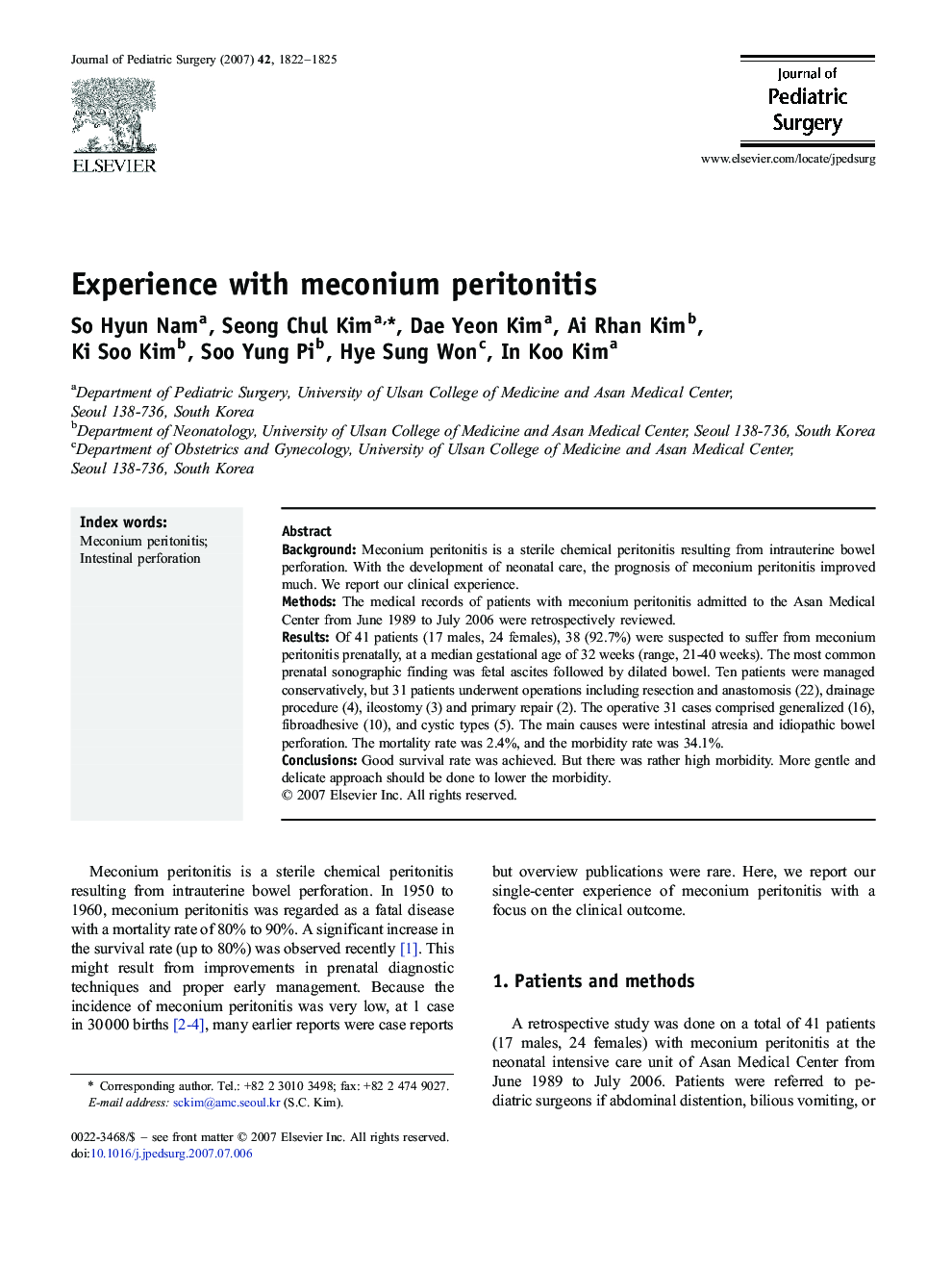| Article ID | Journal | Published Year | Pages | File Type |
|---|---|---|---|---|
| 4160042 | Journal of Pediatric Surgery | 2007 | 4 Pages |
BackgroundMeconium peritonitis is a sterile chemical peritonitis resulting from intrauterine bowel perforation. With the development of neonatal care, the prognosis of meconium peritonitis improved much. We report our clinical experience.MethodsThe medical records of patients with meconium peritonitis admitted to the Asan Medical Center from June 1989 to July 2006 were retrospectively reviewed.ResultsOf 41 patients (17 males, 24 females), 38 (92.7%) were suspected to suffer from meconium peritonitis prenatally, at a median gestational age of 32 weeks (range, 21-40 weeks). The most common prenatal sonographic finding was fetal ascites followed by dilated bowel. Ten patients were managed conservatively, but 31 patients underwent operations including resection and anastomosis (22), drainage procedure (4), ileostomy (3) and primary repair (2). The operative 31 cases comprised generalized (16), fibroadhesive (10), and cystic types (5). The main causes were intestinal atresia and idiopathic bowel perforation. The mortality rate was 2.4%, and the morbidity rate was 34.1%.ConclusionsGood survival rate was achieved. But there was rather high morbidity. More gentle and delicate approach should be done to lower the morbidity.
